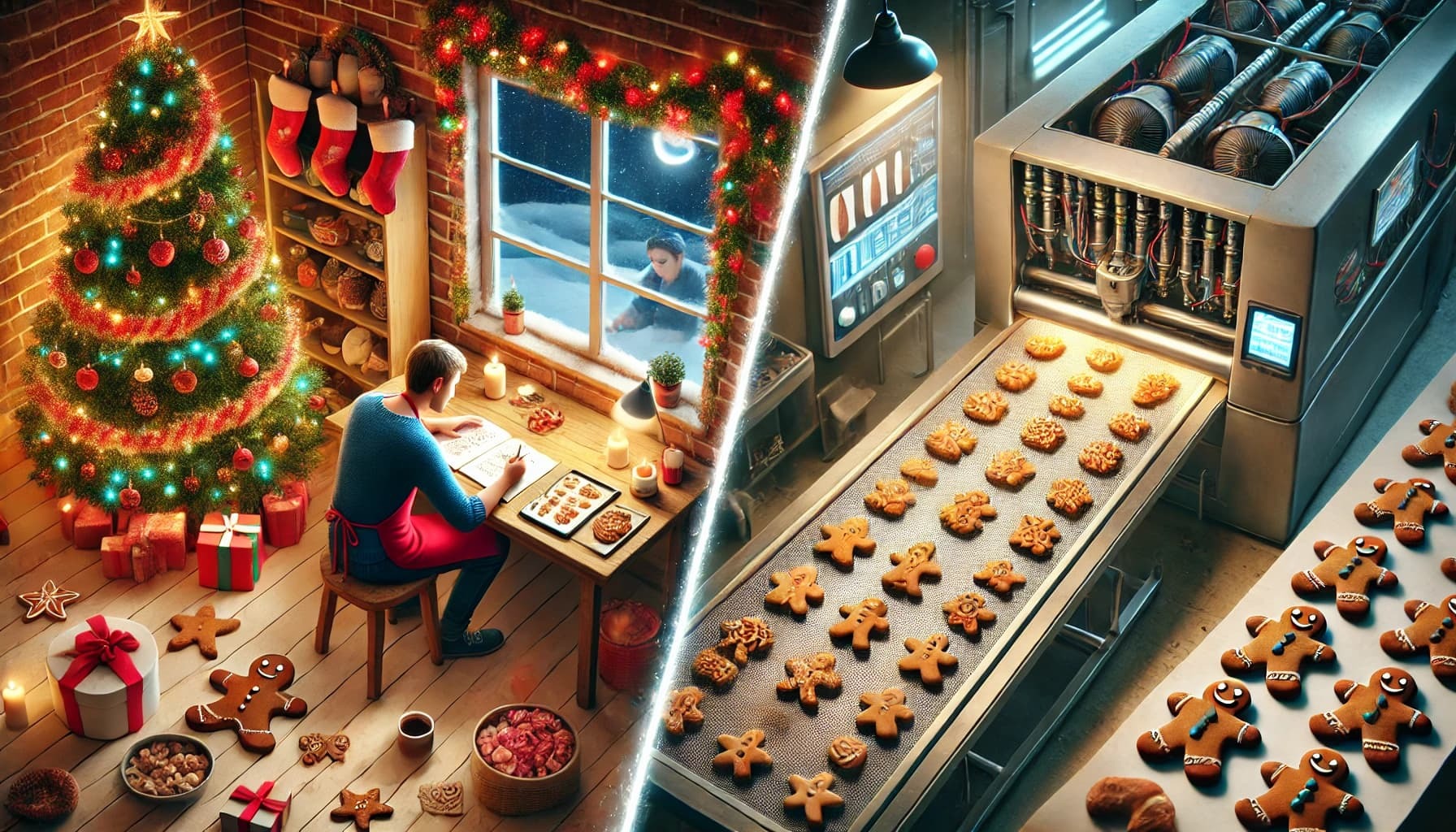
The Industrial Revolution marked a profound transformation in the way humans worked. Machines took over once labor-intensive tasks, such as weaving fabrics or assembling products on factory lines. For many, it was a period of upheaval. Concerns about job displacement were rampant, as humans wondered what their role in the workforce would be when machines could outperform them in speed, precision, and endurance.
Fast forward to today, and we find ourselves at the cusp of another revolution: the AI Revolution. Artificial Intelligence is poised to reshape industries in ways that echo the industrial advancements of the past. Yet, the fears and concerns are strikingly similar. Will AI take over our jobs? Will humans be left behind? And more importantly, what does it mean for us to coexist with these intelligent systems?
A Gingerbread Cookie Epiphany
As I made gingerbread cookies for Christmas, the parallels between past and present crystallized. While rolling out the dough, stamping shapes, and ensuring consistent thickness and design, I thought about how much easier and more precise the process would be if a machine were doing it. Every cookie would be identical in thickness, every stamp perfectly aligned, and the frosting meticulously applied with zero variation. The human touch, while charming, is far from flawless.
This realization gave me a glimpse into the mindset of factory managers during the Industrial Revolution. When humans struggled with the repetitive tasks of producing quality outputs, they must have seen the potential for machines to streamline operations and reduce errors. Machines weren’t just replacing workers; they were improving the outcomes and redefining what humans could focus on.
Embracing AI as a Partner
What if we approached AI the same way those early industrialists approached machinery? Rather than fearing displacement, what if we embraced AI as a partner—a tool to make our jobs easier and free us to focus on more meaningful work? Imagine AI taking over repetitive and precision-demanding tasks while humans engage in innovation, problem-solving, and human-centric solutions.
In the workplace, this might mean letting AI handle data analysis, pattern recognition, and administrative tasks while we strategize, design, and build relationships. AI could handle technical aspects of creative endeavors, enabling us to dream bigger and push creative boundaries. AI-powered machines can ensure consistency and efficiency in manufacturing, leaving humans to innovate new products and processes.
Let Machines Build; Let Humans Innovate
The key to thriving in this AI-driven future is to shift our perspective. Instead of viewing AI as a competitor, let’s see it as a collaborator. Just as machines in the Industrial Revolution didn’t eliminate the need for human workers but instead transformed their roles, AI has the potential to do the same.
Let the machines build the stuff. Let them handle the repetitive, precision-heavy tasks. This allows us to focus on what truly makes us human: creativity, empathy, and the ability to solve complex problems. By doing so, we’re not just making work easier; we’re elevating our potential and redefining what it means to work in the 21st century.
A Balanced Perspective
It’s natural to feel concerned about the changes AI brings. Awareness of potential challenges is essential, but so is adaptability. We can safeguard our relevance in the evolving job market by building skills that align with AI industry trends. Whether we learn to work alongside AI systems, enhance our creative and interpersonal abilities, or solve human-centric problems, the future offers countless growth opportunities.
So, perhaps as you enjoy the perfectly stamped, uniformly frosted gingerbread cookies this holiday season, take a moment to consider the possibilities of an AI-augmented world. Just like the Industrial Revolution, this isn’t the end of human contribution—it’s the beginning of a new chapter where machines and humans work together to build a better future (my hope).